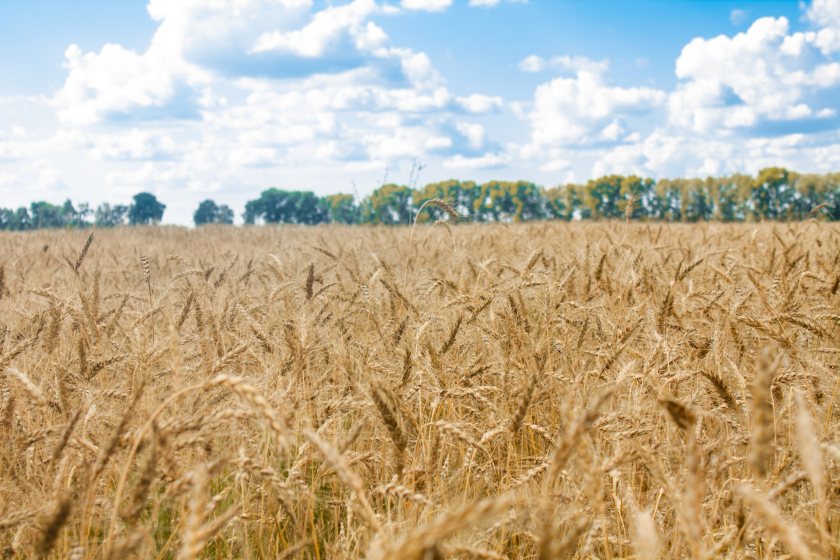Precision Breeding Act ushers in new era for British farmers, say MPs

Farmers across England could soon see new crop varieties that yield more, resist disease and rely less on chemical inputs, as the Precision Breeding Act comes into force today — a change that supporters say could reshape how British agriculture tackles productivity and environmental pressure.
The new law creates a separate regulatory pathway for gene editing and other precision-breeding techniques in plants, distinguishing them from genetically modified organisms.
Ministers argue the shift will allow researchers and plant breeders to bring forward new varieties more quickly, while retaining a clear approval process and scientific oversight.
The move follows years of debate over the role of gene editing in the food and farming system. Academic institutions and several farming organisations have said the technology has potential benefits, but they have also highlighted the need for transparent regulation, independent scrutiny and public engagement.
Some researchers and environmental groups have warned that policy is moving faster than public understanding, and that long-term ecological impacts should be monitored carefully.
The All-Party Parliamentary Group on Science and Technology in Agriculture (APPGSTA), which has campaigned for regulatory reform, welcomed the Act. The cross-party group includes MPs, peers and experts from across food, farming and research.
APPGSTA Chair George Freeman MP said the legislation is “an important step in ensuring that farmers, consumers and the environment can benefit from advances in gene editing and other precision breeding techniques.”
He said applications coming forward are expected to support varieties that “increase yields, reduce chemical inputs, enhance disease resistance, cut food waste and improve nutritional quality.”
Freeman also noted that the Act aligns the UK with countries such as Australia, Japan, Canada, Brazil, Argentina and the United States, which already regulate precision-bred crops separately from GMOs.
He said a “world-class, science-based framework” could help strengthen food security, reduce agricultural emissions and support more sustainable farming systems.
Early applications are expected from public-sector researchers and SMEs, reflecting the aim of widening access to precision-breeding tools through a proportionate, risk-based system. In countries such as Argentina, similar frameworks have enabled smaller developers to work on a more diverse range of crops and traits.
However, not all organisations are convinced. Some scientists note that gene editing is not guaranteed to deliver immediate gains for all farming sectors, and warn that commercial pressures could concentrate innovation among a few breeding companies.
Others argue that technology must be accompanied by investment in soil health, biodiversity recovery and market support if it is to deliver real-world improvements on farms.
The APPGSTA has cautioned that the UK’s approach should not be compromised by future UK–EU alignment discussions or any cross-border Sanitary and Phytosanitary (SPS) agreement.
Freeman urged ministers to “protect the independence of our science-based regulatory framework” to safeguard domestic innovation, though trade specialists note that divergence from EU rules may create future export considerations for certain crops.
While the plant-breeding provisions are now active, the government has not yet implemented equivalent measures for farmed animals.
Supporters argue that precision breeding could help address major livestock diseases and reduce antibiotic use. However, animal-welfare organisations have warned that disease-resistant traits must not inadvertently encourage more intensive systems or place strain on animals, calling for strong welfare safeguards and independent oversight.
Recent warnings from the Pirbright Institute that this season’s bird-flu strain may be highly transmissible have prompted calls for swifter action. Freeman highlighted ongoing UK research into poultry resistant to avian influenza and pigs protected against PRRS and swine fever, but said such advances “will remain unrealised in practice” until secondary legislation is brought forward.
Defra has been urged to publish a clear timetable for activating the animal provisions and establishing a robust regulatory process involving scientists, breeders, welfare organisations and farmers.
Looking ahead, government sources and independent analysts agree that precision breeding will sit alongside — not replace — wider reforms in land use, sustainability, agricultural emissions and farm economics.
Proponents say the Act could form part of a more innovation-friendly agricultural policy, while critics stress the importance of ensuring benefits reach farms of all sizes rather than a handful of large developers.








